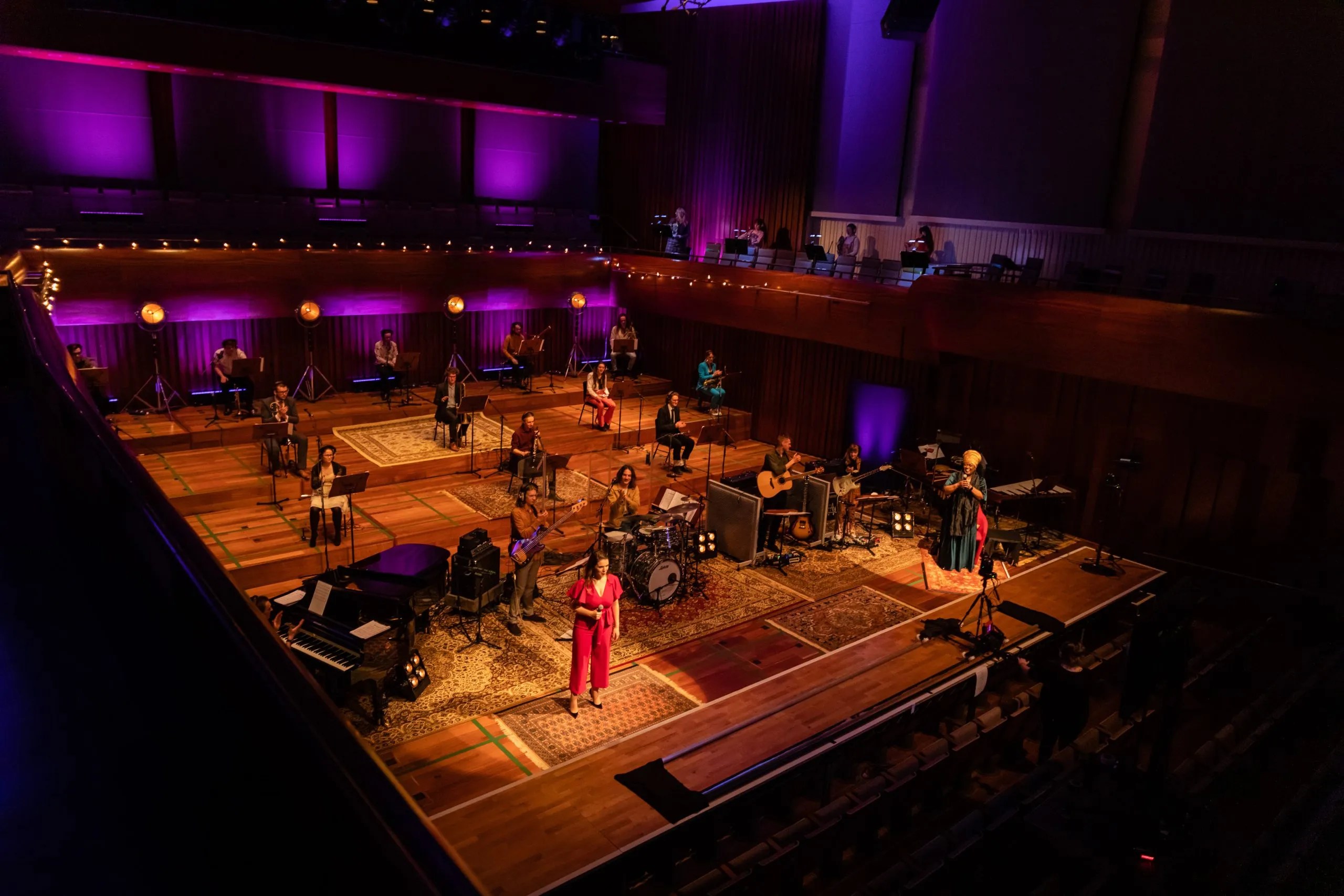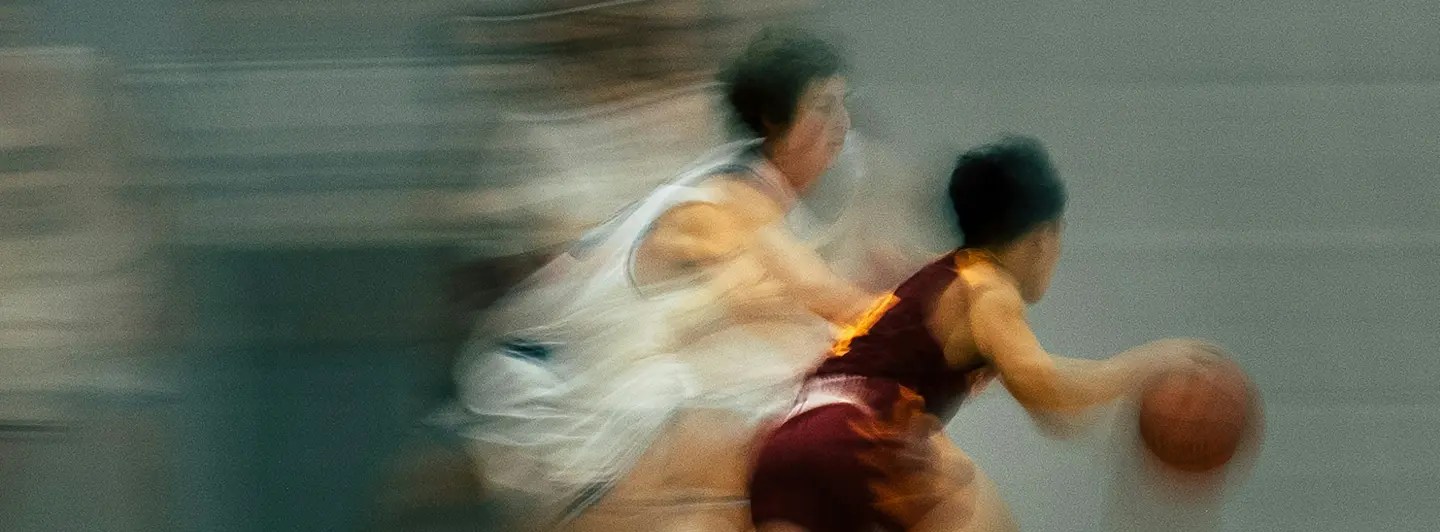Since opening in 1880, London’s renowned Guildhall School of Music and Drama has been one of the world’s most prestigious conservatories. They deliver world-class professional training in partnership with distinguished artists, companies and ensembles of musicians, actors and production artists. Due to the pandemic, Guildhall’s annual Gold Medal performance scheduled for September 2020, an unbroken tradition since 1915 despite two world wars, was in serious jeopardy of breaking tradition as all teaching and instruction moved online.
Through a brilliant application of Vizrt’s TriCaster – Live Video Production System, NDI® , Audinate’s Dante (video and audio-over-IP technologies respectively), BirdDog NDI PTZ (pan-tilt-zoom) cameras, and SDI-to-NDI converters, the Gold Medal performance was able to continue its 115 years of tradition despite the ongoing pandemic.
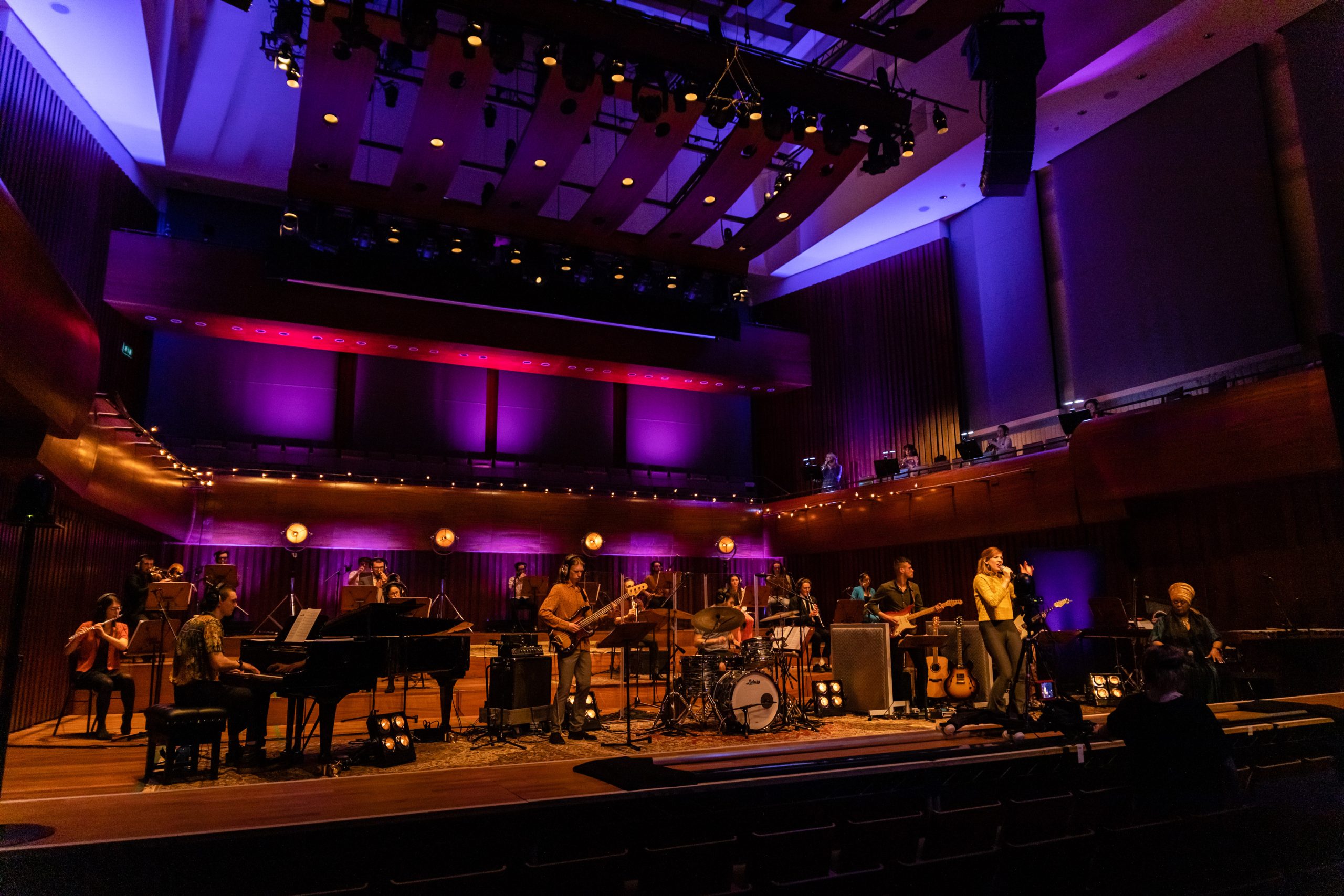
Opening a world of possibilities
Guildhall School is a vibrant, international community of musicians, actors and production artists in the heart of the City of London. Ranked as number one in Arts, Drama & Music by the Complete University Guide 2025, and in the top four in the world for Music and Performing Arts by the QS World University Rankings 2025, we deliver world-class professional training in partnership with distinguished artists, companies and ensembles. As a global leader in creative and professional practice, they promote innovation, experiment and research, and are also one of the UK’s leading providers of lifelong learning in the performing arts, offering inspiring training for children, young people, adult learners, and creative and business professionals.
They have performance venues split across two buildings including two world-class concert halls. On any given day, they could have up to five gigs happening simultaneously across the school that needed to be recorded and broadcast.
When covid hit, the School wanted to have the digital infrastructure to support them not only through the pandemic, but also to improve our teaching and learning facilities for when it was opened up again. The pandemic meant live performances would incorporate streaming, and remote collaboration was more necessary than before. With previous SDI-based system with cameras and a vision mixer connected, and a limited budget to drill holes in grade2listed buildings, there was no option of internconnecting these spaces, putting more cameras in extra rooms and haviing them easily accessible.
We needed a system that allowed performances to play simultaneously in multiple rooms, yet have performers feel as if they're playing together," says Ziajka. "We needed something flexible, to allow us to scale up and add rooms as and when we needed.
Sam Ziajka
Recording and AV - Network and Systems Manager, Guildhall School of Music
The Show Must Go On
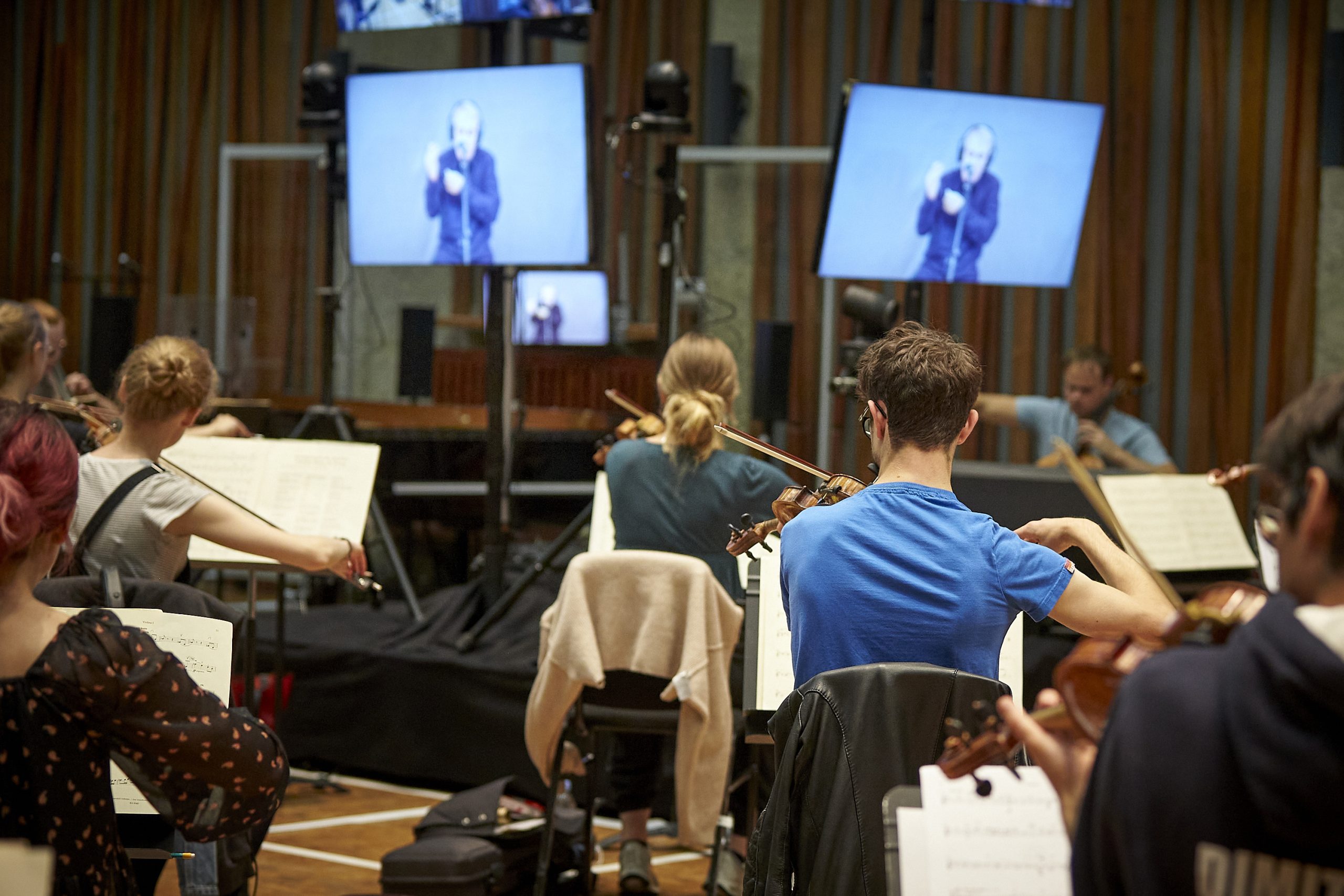
What started in the pandemic was the mandate of social distancing, requiring at least three metres between musicians. “Our concert hall which can usually take a small symphony orchestra would only be able to fit 15 players,” says Julian Hepple, Head of Recording and Audio Visual. “All of a sudden, we had no way of providing a facility for large ensemble performance.”
With group performance a crucial part of training practice, it had huge implications for both actors and musicians. Then there was the Gold Medal, the Guildhall School’s premier music prize founded in 1915. The final for this competition had never been cancelled in its history despite world events, yet there looked to be no way to run it safely.
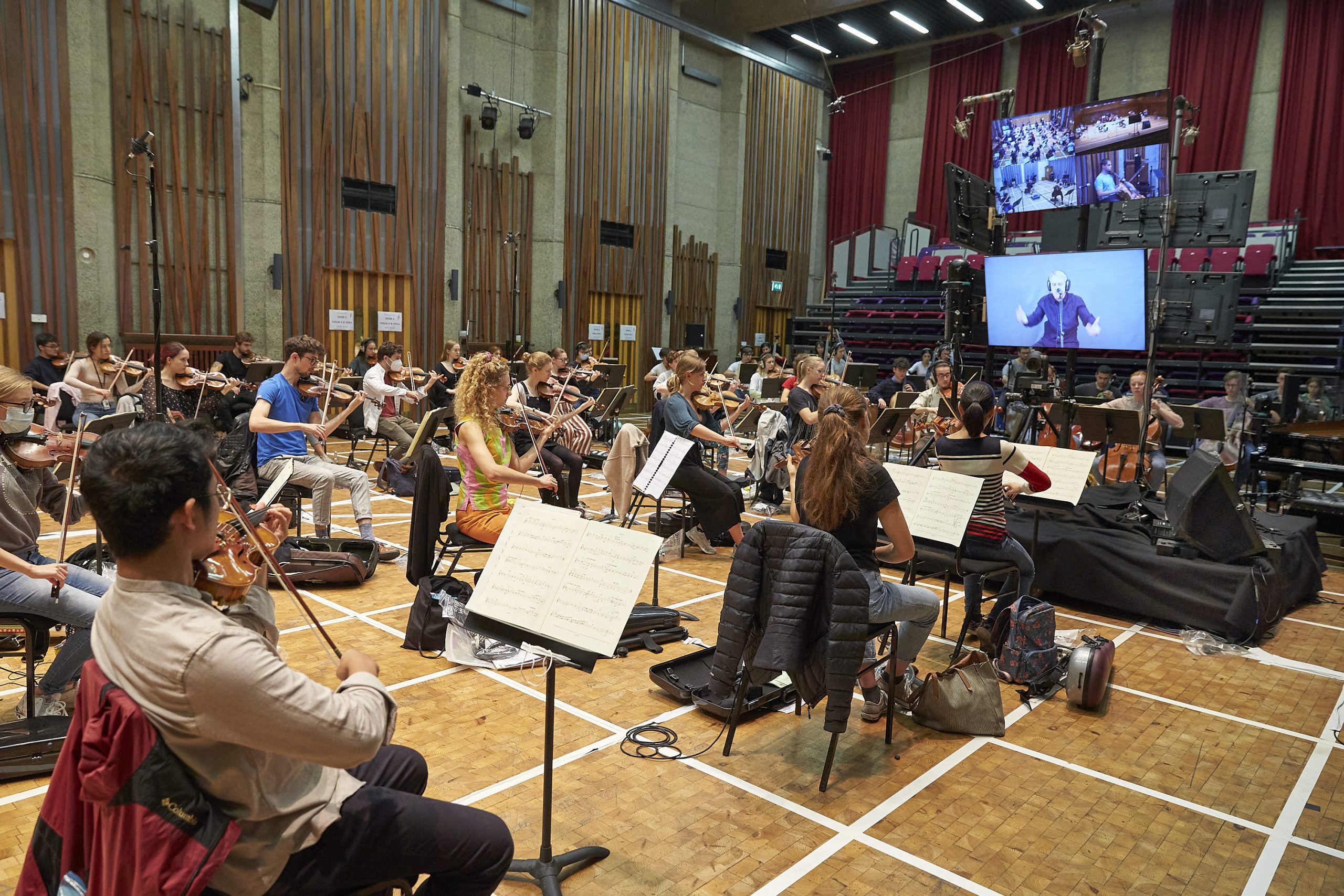
Protocol Performance
The Guildhall team started investigating IP video options. Working with technology solutions reseller and workflow design firm Altered Images, and the Vizrt team, the Guildhall team invested in the TriCaster live video production system and other components using the NDI video-over-IP protocol, such as BirdDog NDI PTZ cameras and SDI-to-NDI converters, plus upgrading existing Panasonic PTZ cameras with NDI.
“We had to allow all our performers to play synchronously across the buildings,” says Ziajka. “We found that NDI-enabled Vizrt solutions could offer us a low latency system with sensible data rates, which was high quality and was easy to operate. We decided to go with the VMC as it was NewTek’s flagship product at the time. With its support for up to 40 NDI inputs and outputs, we could route a large number of cameras across the network to deliver the experiences we wanted.”
With the help of Vizrt and Altered Images, Ziajka’s team devised an entirely new campus-wide NDI network to cover four buildings in different parts of the campus, working seamlessly with the existing, now expanded Dante Audinate audio-over-IP network.
“We can log into any machine on our network and route the picture and sound to where we need it,” says Ziajka. “We got latency down to about two frames on the devices across the network.”
The orchestra was split across rooms, each equipped with PTZ cameras and screens on the NDI network, showing live feeds from other rooms. “We put the strings in one venue, the brass and percussion in another, and then the woodwinds in the third venue,” explains Ziajka. “We put the conductor in a [networked] booth to allow all the performers to see them at the same time. It felt like being an orchestra again.”
“It was the only way to allow large ensemble teaching to continue, and I think students were grateful for that experience.” adds Ziajka.
Under this new system, the Gold Medal Final which has been held continuously for more than a century, managed to take place safely in September 2020.
The Guildhall has since produced hundreds of public-facing productions, two entire seasons of digital content with multi- camera, multi-room performances that are recorded or broadcast live.
We can simultaneously record and live stream for multiple performances, painlessly. Support for 1080p50 lets us deliver Full HD content of all our concerts
Sam Ziajka
Recording and AV-Network and Systems Manager at Guildhall School of Music and Drama
TriCaster-driven experiences
With the TriCaster system sitting at the heart of a single NDI and Dante-powered network, the whole building can act as one venue. The four mix engines in the VMC means the Guildhall can run four full gigs simultaneously.
Staff configure the IP video workflow to suit their needs through the TriCaster LivePanel browser-based interface. IP connectivity also allows staff to work remotely if required, able to control the cameras and whole lighting sessions from home in some cases. Julian Hepple added that with over 400 NDI endpoints across four buildings in a complete environment, he can turn up with three cameras and a couple of CAT5 cables and be shooting within five minutes in any of the rooms on campus. Adding to the network is easy for example, a graduation ceremony took place with students and parents on 120 Zoom Breakout Rooms in 18 different Zoom calls using NDI Virtual Input for beautifully choreographed sequences.
We don't have to worry about extra equipment because it's all contained within the VMC. With NDI we can broadcast from anywhere. We put on a Guildhall 'Live Lounge' event in a space which we've never streamed from before. The NDI capabilities made it easy to quickly add cameras, contain them within our system and put on a professional gig.
Annie Smith
Recording & AV Technician, Guildhall School of Music and Drama
What’s next
With the new set up in place, they have linked up live performances between multiple buildings and multiple studios. They can record as many streams as they want, and seamlessly capture multiple performances at multiple angles. The next step is to link with partner organisations and satellite schools around the country to enable world-class teaching and to deliver meaningful, high-quality real-time performances.Julian added that their whole building is now just alive! Anywhere with a CAT 5 connection in it now gives us a world of opportunity.
After the first performances in September 2020 we had to scale up the number of cameras and endpoint devices just to meet the demand," says Ziajka. "We built another control room, with touchscreens that work fantastically with the Live Panel system.
Sam Ziajka
Recording & AV Network and Systems Manager, Guildhall School of Music and Drama
